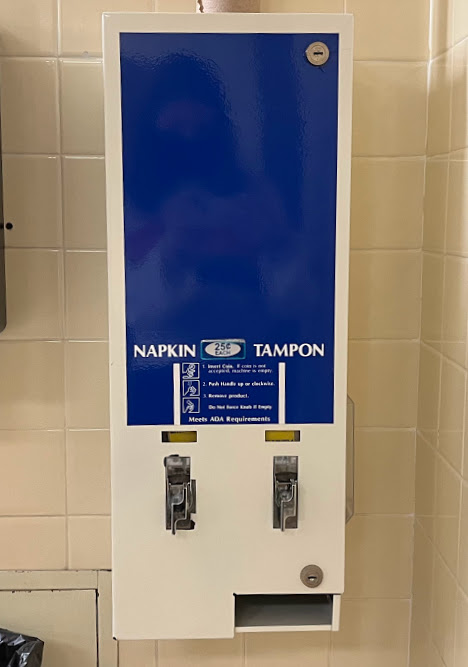House Bill 641 is a step in the right direction
October 8, 2021
Periods just got a little less painful.
According to House Bill 641, passed earlier this year, universities and community colleges must provide free period products in all campus bathrooms.
No longer are the days of embarrassingly asking female friends or classmates for a tampon or digging in your purse for a quarter to buy one.
Effective immediately, this bill makes period products accessible to students on campuses across the state of Illinois.
For women, AFAB (assigned female at birth), non-binary and transgender students, this is just the first small step in recognizing that period products are a necessity and that they aren’t a privilege. Pads and tampons are essential hygiene products and should be treated as such.
The Gender and Sexuality Resource Center at NIU holds The Period Project NIU, which raises awareness about the “tampon tax” and the financial burden that period products have for some students. The GSRC also accepts donations of period products.
By providing free products in bathrooms across campus, the burden of buying expensive period products will evidently decrease for some students.
“There are some people where it’s an occasional ‘I need a pad or a tampon…’ and then there’s some people that, if it were available, would utilize (free products) more frequently,” said Molly Holmes, director of the Gender and Sexuality Resource Center. “It would really take away the worry or pressure of ‘What am I going to do?’”
Ideally, this would work great. But even with products provided for free, there are problems.
Even if the products are free, the demand for them is questionable. So is the quality of the products available in most public bathrooms.
“The quality and the value of the products matter,” Holmes said.
Without quality, there won’t be demand.
Inclusivity could also still be an issue. While women’s bathrooms already have the infrastructure to support product dispensers, men’s bathrooms do not. Having to add product dispensers could make implementing free products across campus a much more difficult and timely venture.
“We want to make sure that people know that it’s not just people who identify as women (who menstruate), (it’s also) non-binary people, trans men,” Holmes said. “It’s not just always saying ‘here’s some free pads and tampons,’… it’s always (about) providing education.”
Despite the issues, providing free period products to students is still important.
“If we can get to a place where (periods) are normalized, then we can really open up our minds to having more conversations about what’s right for us,” Holmes said.
Providing free period products is just the beginning of a long conversation about sexual health and safety. While there is still a long way to go for universities across the state, implementing House Bill 641 is a step in the right direction.







